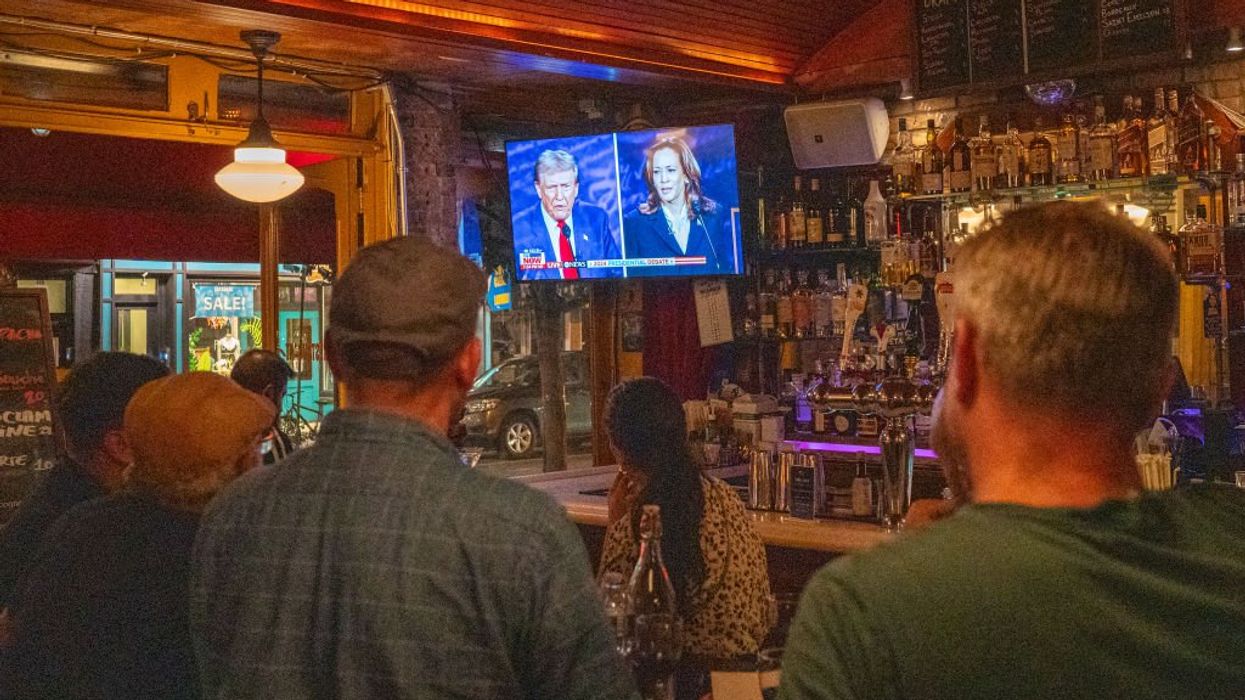As it has been doing yearly since 2009, the fact-checking organization PolitiFact has chosen the Lie of the Year (2024). There was an abundance of nominees.
And, it turns out, they chose the same whopper I identified as a top contender months ago: President-elect Donald Trump’s unfounded claim that Haitian migrants were eating the household pets of Springfield, Ohio.
“In Springfield, they’re eating the dogs,” said the former and now future Republican president during his Sept. 10 debate with his Democratic rival, Vice President Kamala Harris.
“The people that came in,” he continued to a TV audience of an estimated 67 million viewers. “They’re eating the cats. They’re eating, they’re eating the pets of the people that live there. And this is what’s happening in our country. And it’s a shame.”
Oh, really? An astonished-looking Harris gave an incredulous laugh, but the line was not a new one for Trump and his MAGA movement supporters, including his running mate, Sen. JD Vance, whom Politifact co-credited for the Lie of the Year.
Yet, before I happily rip into that bone-headed attempt to slander innocent refugees living and working peacefully in Springfield, according to local officials and Ohio’s Republican Gov. Mike DeWine, who have welcomed their labor to the economically troubled town near where I grew up, allow me to note a leading alternative nominee in the eyes of some prominent conservative commentators: Democratic President Joe Biden.
“It’s hard to imagine a more perfect encapsulation of the total rot of American media than this,” huffed Dylan Housman, editor-in-chief of the conservative Daily Caller, in a column decrying Politifact’s choice for the dubious award.
Trump’s and Vance’s lie, Housman offered, “is the equivalent of a speck of dirt sitting at the base of a mountain that is one of the biggest scandals in American political history: the lie that Joe Biden was acting as president in 2024 and was mentally capable of serving another four years.”
Biden’s whopper deserves more attention, wrote Housman, “because it tells us the media has learned nothing. Through all the navel-gazing, post-mortems and autopsies, the corporate media has learned nothing about why Donald Trump is president and nobody trusts them.”
And on and on come the protests from the right. As I often point out when political arguments break out at my own home, everyone is entitled to have their own wrong opinion.
Frankly, I’m not delighted by Biden’s broken promise to avoid pardoning his troubled son Hunter, either. Yet I can’t say I would not have done the same for my own son, especially if it looked — as it appears in Hunter Biden’s case — that he was mainly in trouble because of me.
But let’s get back to Housman’s conceit about "why Donald Trump is president." It has much to do with the immigration issue, which in the spin of the Trump campaign was an edifice built on some truths but also a great deal of half-truths and outright lies.
Accusing Haitian immigrants in Springfield of eating pets had become a Republican talking point before Trump mentioned it in the debate. What apparently started as an unsubstantiated post in a local Facebook group spread through far-right and neo-Nazi social media before being laundered by more mainstream influencers and eventually getting picked up by Vance and then Trump.
For Vance and Trump, the Haitians were a convenient, symbolism-laden group to raise fear and suspicions about immigration and border security reform.
It didn’t matter that the 12,000 to 15,000 Haitians of Springfield were almost all there legally, having been granted Temporary Protected Status, and that many came to the town after being recruited to fill positions the local workforce couldn’t. And of course it didn’t matter that those who spread the stories of pet eating hadn’t made the least attempt to verify the facts.
In fact, after Trump’s ridiculous debate performance against Harris, CNN’s Dana Bash confronted Vance about the patent falsity of the story. His response was an astonishing admission: "If I have to create stories so that the American media actually pays attention to the suffering of the American people, then that’s what I’m going to do…."
So it was a lie, but it was OK because Vance and Trump needed anti-immigrant hysteria front-and-center in election coverage.
Soon after the debate, Springfield was experiencing multiple bomb threats, school closures and growing fear of the sort anyone would feel when their community suddenly is being targeted and terrorized by strangers, spurred by militant fanatics and paranoid conspiracy theorists.
I wish the Haitians well. As a former resident of that part of Ohio whose parents migrated there from Alabama, I was delighted to hear that the migrants apparently had fit peacefully and productively into the area until politics raised its ugly head.
We need to get back to giving newcomers a more proper welcome, but I guess we’ve got to get past another election first.
Behind the “Lie of the Year,” some bitter truths was first published by The Tribune Content Agency, and was republished with permission.
Clarence Page is an American journalist, syndicated columnist, and senior member of the Chicago Tribune editorial board.
©2024 Tribune Content Agency. Distributed by Tribune Content Agency, LLC.




















